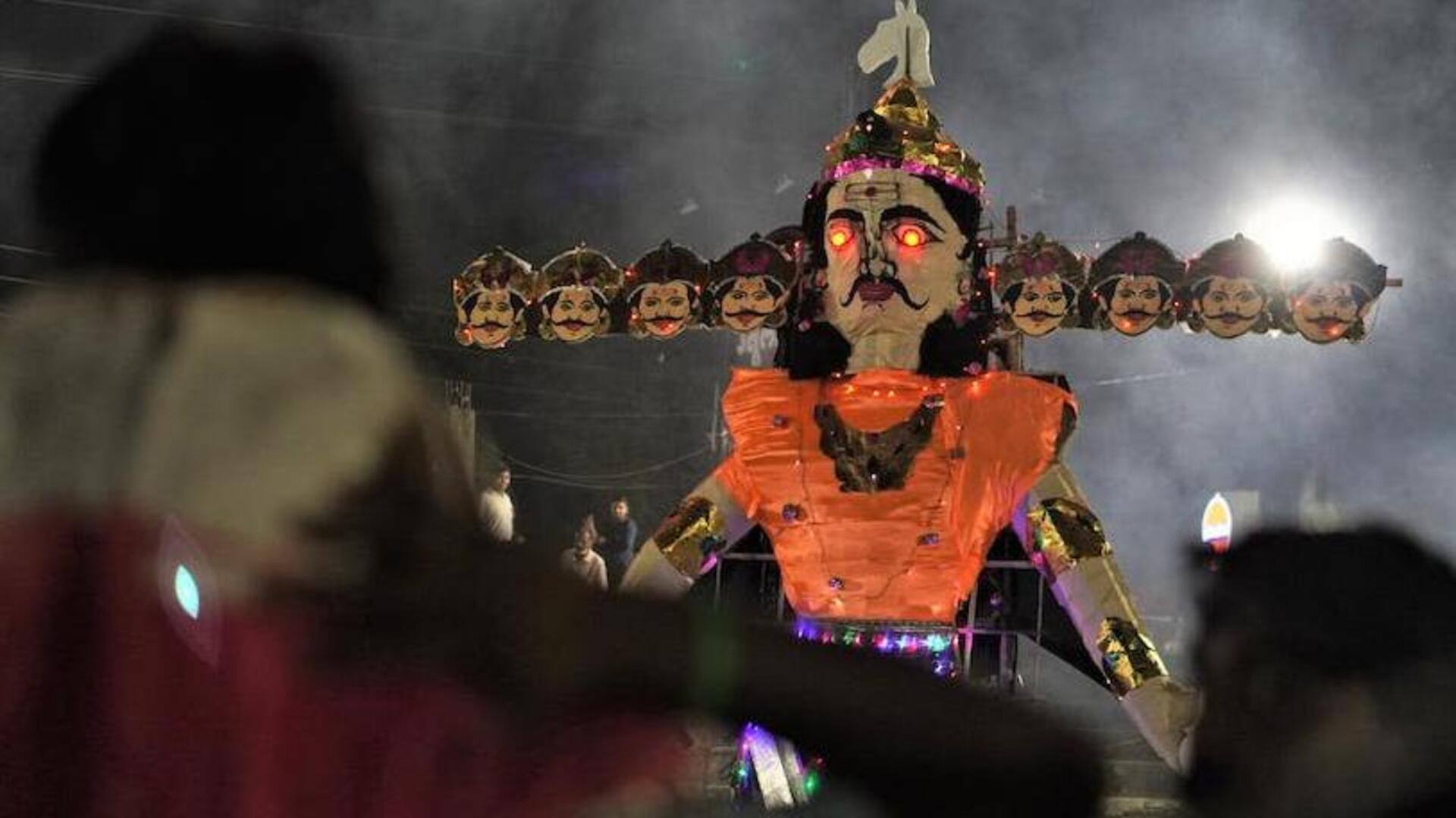
Dussehra: Understanding festival that celebrates victory of good over evil
What's the story
Dussehra, also known as Dasara or Vijayadashami, symbolizes the victory of good over evil and marks the end of the Navratri festival. The significance of Dussehra, its history, and its vibrant celebrations make it a major festival in the Hindu calendar. Let's explore the various customs and festivities that make Dussehra an occasion to mark with much fervor and extravaganza across the country.
Significance
Significance
In northern, western, and central India, Dussehra commemorates Lord Rama's victory over the 10-headed demon king Ravana, who abducted his wife Sita. The Sanskrit words "dasha" (meaning 10) and "hara" (meaning defeat) are the source of the festival's name. It also marks the conclusion of the nine-day Navratri. In eastern, northeastern, and southern India, Dussehra signifies the end of the 10-day Durga Puja festival.
Celebration
How it is celebrated
People celebrate Dussehra with a lot of zeal and pomp. Ramlila performances are a popular way to commemorate the festival of Dussehra, especially in North India. Ramlila is a grandiose theatrical presentation of the Hindu epic Ramayana .Effigies of Ravana are packed with firecrackers and set ablaze at night in open fields, frequently accompanied by those of Ravana's son, Meghnada, and his brother, Kumbhkarana.
Rituals
Rituals and customs
Moreover, on Dussehra, people in different Indian regions, especially the east, south, and northeast, worship Goddess Durga. After a fierce nine-day fight, it is believed that Maa Durga killed the demon Mahishasura on this day, protecting the planet. Legend has it that gods also revered Goddess Durga's weapons after she vanquished Mahishasura. Known as "asthra pooja," this tradition continues in many parts of India.
Diwali prelude
Prelude to Diwali
Dussehra also signifies the start of Diwali festivities. It occurs 20 days before the festival of light, which commemorates the return of Lord Ram, Sita, and Lakshman from Lanka to Ayodhya. The theme of Vijayadashmi is the triumph of light over darkness and good over evil, which is a constant reminder that justice and righteousness will always prevail in the end, despite several obstacles.